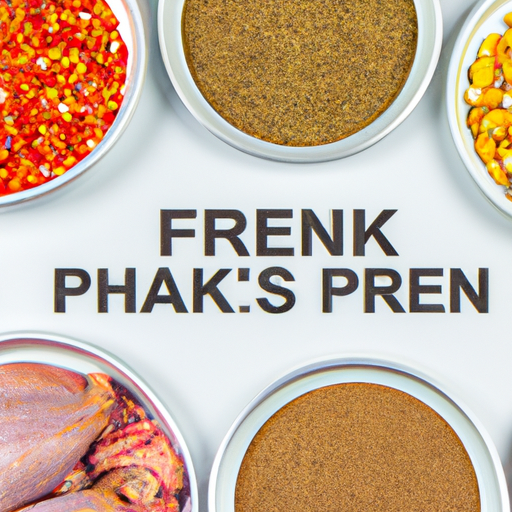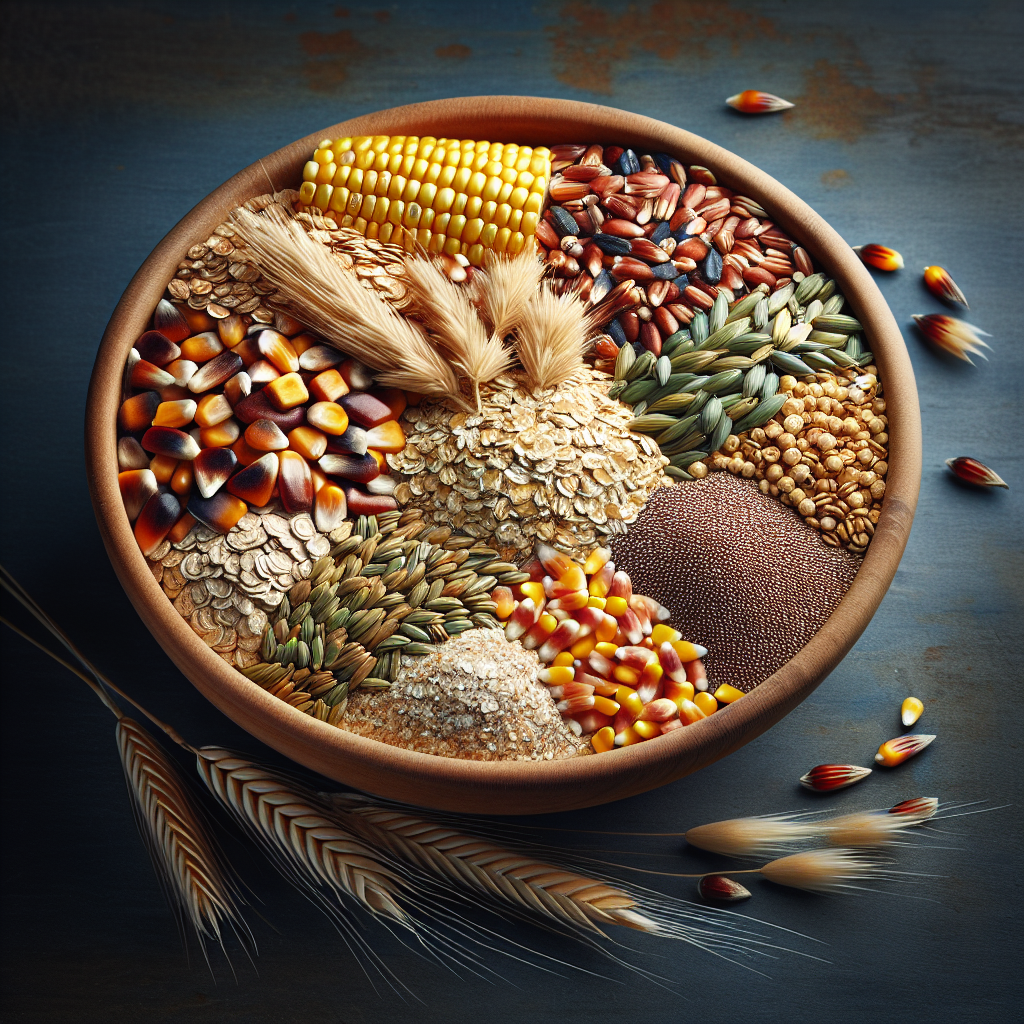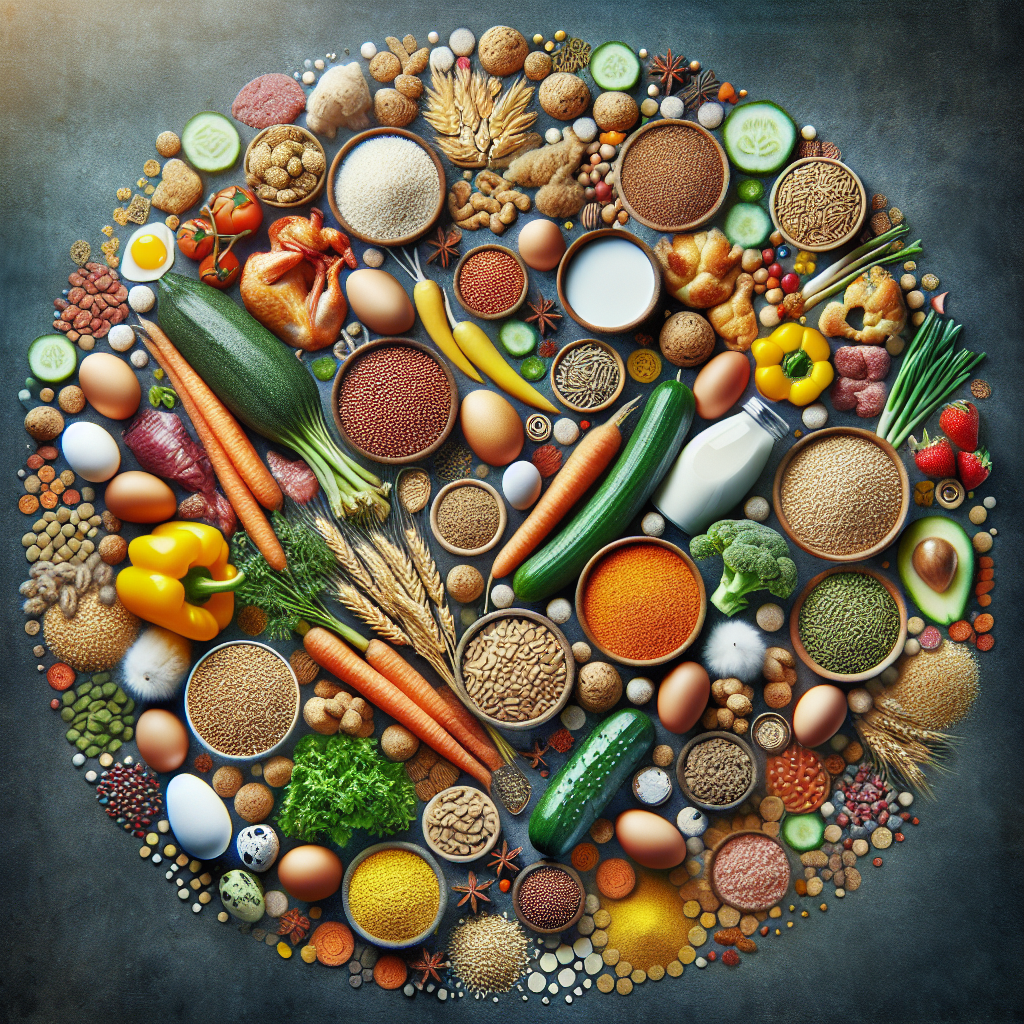If you’ve ever wondered what goes into the diet of our feathered friends, then you’re in for a treat! In this article, we’ll uncover the primary ingredients frequently found in chicken feed. From nutrient-packed grains to protein-rich sources, you’ll discover the essential elements that keep chickens clucking and thriving. So, let’s dive right in and explore the fascinating world of chicken feed ingredients!
Primary Ingredients Commonly Found in Chicken Feed
When it comes to providing your chickens with a balanced and nutritious diet, understanding the primary ingredients commonly found in chicken feed is essential. Just like humans, chickens require a variety of nutrients to thrive and stay healthy. A well-balanced chicken feed should contain a combination of protein sources, grains and seeds, by-products and supplements, fats and oils, vitamins and minerals, enzymes and probiotics, fiber sources, additives and preservatives, as well as medicated and natural/organic ingredients.
Protein Sources
Protein is one of the most critical components of a chicken’s diet, as it helps with muscle development, feather production, and overall growth. The primary protein sources found in chicken feed often include soybean meal, fish meal, and canola meal. These ingredients provide a high content of essential amino acids, which chickens cannot synthesize themselves and must obtain from their diet. Protein sources in chicken feed are carefully chosen to ensure they meet the nutritional requirements of different chicken breeds and production purposes.
Grains and Seeds
Grains and seeds are another essential component of chicken feed. They provide energy, carbohydrates, and various vitamins and minerals. Common grains used in chicken feed include corn, wheat, barley, and oats. These grains are often ground or cracked, making them easier for chickens to digest. In addition to grains, seeds like sunflower seeds and flaxseeds are also included in chicken feed to provide additional nutrients and healthy fats. These ingredients not only fulfill the energy requirements of the chickens but also contribute to their overall well-being.
By-Products and Supplements
By-products and supplements play a crucial role in enhancing the nutritional profile of chicken feed. By-products from the human food industry, such as wheat bran, rice bran, and brewer’s yeast, are often included to add fiber, minerals, and vitamins. These by-products are the result of processing grains, and repurposing them in chicken feed reduces waste. Additionally, supplements like calcium carbonate and oyster shells are added to provide sufficient calcium for strong eggshells. Supplements play a vital role in meeting the specific dietary needs of chickens at different stages of life.
Fats and Oils
Fats and oils in chicken feed serve multiple purposes. They provide a concentrated source of energy, help with the absorption of fat-soluble vitamins, and contribute to the palatability of the feed. Common fats and oils added to chicken feed include vegetable oil, fish oil, and poultry fat. These ingredients ensure that chickens receive the necessary fatty acids, including omega-3 and omega-6, which are essential for their health and well-being. Fats and oils also improve the texture of the feed, making it more enjoyable for chickens to consume.
Vitamins and Minerals
Vitamins and minerals are vital components of chicken feed, as they are necessary for the proper functioning of various bodily processes. Essential vitamins include vitamin A, vitamin D, vitamin E, and the B-complex vitamins. Minerals such as calcium, phosphorus, potassium, and magnesium are also important for bone development, muscle function, and overall health. These nutrients are added to chicken feed in the form of premixes or individual additives to ensure that chickens receive a well-rounded diet that meets their specific requirements.
Enzymes and Probiotics
Enzymes and probiotics are gaining increased popularity as additional ingredients in chicken feed due to their potential health benefits. Enzymes help break down complex nutrients, making them more easily absorbed by the chickens. Probiotics, on the other hand, promote a healthy gut by providing beneficial bacteria that aid in digestion and support the immune system. Including enzymes and probiotics in chicken feed can improve nutrient utilization, reduce digestive issues, and enhance overall gut health in chickens.
Fiber Sources
Fiber is an essential component of chicken feed as it aids in proper digestion and helps prevent digestive problems. Common fiber sources found in chicken feed include alfalfa meal, soy hulls, and beet pulp. These ingredients provide chickens with necessary dietary fiber, which supports the overall health of their digestive system and helps prevent issues like crop impaction. Including fiber sources in chicken feed ensures optimal digestion and promotes the well-being of your feathered friends.
Additives and Preservatives
Certain additives and preservatives are used in chicken feed to enhance its shelf life and prevent spoilage. Antioxidants like ethoxyquin or vitamin E may be added to prolong the freshness of the feed and prevent the degradation of essential nutrients. Mold inhibitors, such as calcium propionate, ensure that the feed remains safe and mold-free. These additives and preservatives are carefully regulated to ensure they are safe for both chickens and those who consume their eggs or meat.
Medicated Ingredients
In some cases, chickens may require medicated feed for the prevention or treatment of specific diseases. Medicated feed often contains antibiotics or coccidiostats, which help control bacterial infections or parasites. Medicated ingredients are used under veterinary guidance to ensure the health and well-being of the flock. It is essential to follow proper withdrawal periods when using medicated ingredients to prevent residues from entering the food supply.
Natural and Organic Ingredients
Natural and organic chicken feed has gained popularity among those who prefer to raise their chickens using organic practices. Natural chicken feed typically excludes synthetic additives, antibiotics, and genetically modified ingredients. Organic chicken feed adheres to strict regulations set by organic certification agencies and is made with organic grains, seeds, and other ingredients. Choosing natural or organic chicken feed ensures that your chickens are fed with the highest quality and minimizes their exposure to potentially harmful substances.
In conclusion, understanding the primary ingredients commonly found in chicken feed is crucial for providing your flock with a healthy and nutritious diet. Protein sources, grains and seeds, by-products and supplements, fats and oils, vitamins and minerals, enzymes and probiotics, fiber sources, additives and preservatives, as well as medicated and natural/organic ingredients all contribute to a well-balanced and wholesome chicken feed. By selecting feed that meets the specific needs of your chickens, you can ensure their overall health, growth, and productivity, leading to happy and thriving chickens in your coop.




